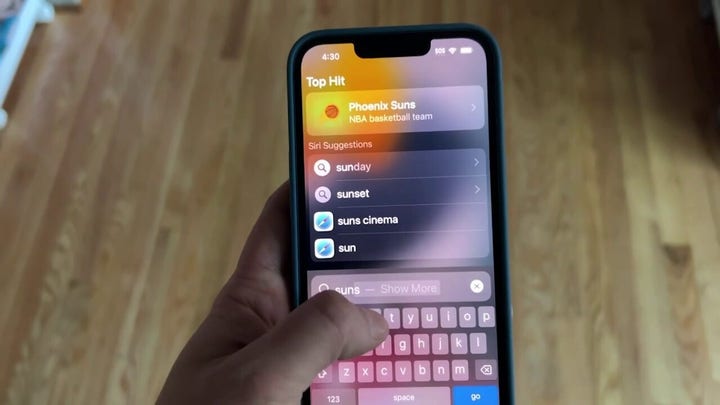Do you still need to pay for your home cable internet with 5G rolling out across the country?
That’s a good question. First, let’s discuss what 5G internet is. It’s the latest in internet innovation in wireless technology. Some wireless networks like T-Mobile are claiming that their 5G service is faster than traditional cable internet connections. Plus, they are advertising lower monthly rates since you’re avoiding the equipment and service fees that usually come with home cable plans.
So, should you be paying for cable internet when you are already paying for 5G cellular service that could provide you the same benefits? I’ve got the answers for you.
CLICK TO GET KURT’S CYBERGUY NEWSLETTER WITH QUICK TIPS, TECH REVIEWS, SECURITY ALERTS AND EASY HOW-TO’S TO MAKE YOU SMARTER

Here’s what to know if you’re considering getting rid of home internet in exchange for 5G on its own. (Kurt Knutsson)
What is 5G home internet?
The term 5G means fifth generation, meaning the fifth generation of wireless data networks. This type of internet connects your home to a cell tower or data hub nearby by using a wireless internet gateway.
HOW TO SPEED UP YOUR WIFI, INTERNET CONNECTIONS
Unlike cable internet, no wires are needed to transmit data from those cell towers or data hubs to your home, and it’s run completely by the cellular phone company.
It is meant to be faster than having cable or fiber internet, and you can still stream movies and TV shows from your smart TV, smartphone, or laptop with 5G. However, the speed and performance of 5G home internet really will depend on where you’re located.
Is 5G more affordable?
5G is definitely more affordable than paying for broadband plans when it comes to home internet. On average, carriers typically charge anywhere between $15 to $70 per month, depending on which carrier you’re using and what plan you opt in for.
T-Mobile, Starry, and Verizon are the ones with the most decent download speeds as well, with T-Mobile averaging at just over 100Mbps, Starry at 200Mbps, and Verizon at 300Mbps. Each provider’s plans include all fees, taxes, equipment, and installation charges, and there are no term contracts, so you do not need to worry about early termination fees.
HOW TO SHARE YOUR WIFI PASSWORD WITH GUESTS

Should I pay for cable internet or rely on 5G for my internet?
Whether you opt to go with 5G cellular service instead of home cable internet depends on your location and specific needs. You might have multiple devices that require strong connections for activities such as streaming, watching videos, video calls, gaming or anything else.
In this case, you might need cable internet instead. Before making a decision, it’s best to research the 5G coverage in your area. Be sure to compare the speeds, plans, and costs of both options to decide which is the best for you and your family. To research the 5G coverage in your area, we recommend the following:
Checking out carrier websites: A coverage map is available on most major carriers’ websites that show the areas where 5G service is available.
Understand the costs: Cellular data plans often have limits on the amount of data you can use each month. If you exceed this limit, you may end up paying more for additional data.
HOW TO LOWER YOUR INTERNET SERVICE BILL
Multiple devices matter: If you have multiple devices in your home that require strong connections, 5G may not be strong enough to give you the quickest connection on all of these devices.
Carrier customer service: You can also contact your carrier’s customer service and ask if 5G is available in your area. They may also be able to tell you if there are any plans to roll out 5G in your area in the future.
What are the pros and cons of 5G home internet?
Pros:
Prices are lower
Tons of perks and discounts
No data caps, no annual contracts, no equipment or installation fees.
MY BROWSER IS SUPER SLOW, HOW DO I FIX IT?
Cons:
Limited nationwide availability (mostly available in cities and metro areas only)
Fluctuating speeds
More outages than cable.
What are the pros and cons of cable home internet?
Pros:
Fast speeds and gigabyte options
Nationwide availability
Reliable connection and low chance of outages.
Cons:
Data caps and contracts with some providers
Extra fees for installation and equipment
Promo prices go up after 12 months.

If you are shopping around for 5G internet, you’ll want to check out my Best wireless carrier picks. It will be very helpful to you when comparing plans. Head over to CyberGuy.com and search “Best wireless carrier picks“ by clicking the magnifying glass at the top of my website.
CLICK HERE TO GET THE FOX NEWS APP
For more of my tips, subscribe to my free CyberGuy Report Newsletter by clicking the “Free newsletter” link at the top of my website.
Copyright 2023 CyberGuy.com. All rights reserved. CyberGuy.com articles and content may contain affiliate links that earn a commission when purchases are made.
